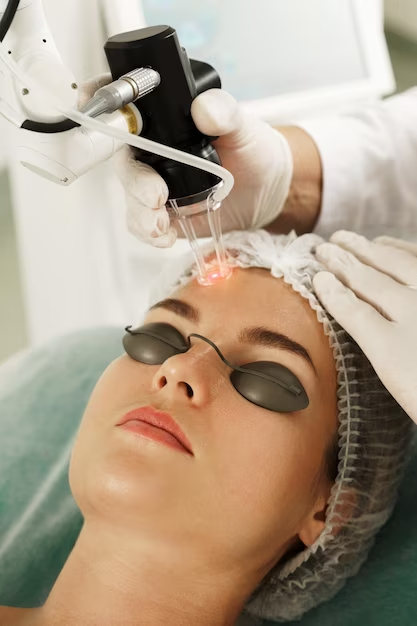Psoriasis is a chronic autoimmune skin condition that affects millions of people worldwide, including South Africa. It is characterized by the rapid growth of skin cells, leading to the development of red, scaly patches on the skin’s surface. While psoriasis cannot be cured, there are various treatment options available to manage the symptoms and provide relief for individuals living with the condition. In South Africa, the treatment of psoriasis often involves a combination of topical treatments, phototherapy, and systemic medications.
- Understanding Psoriasis: Psoriasis occurs when the immune system mistakenly attacks healthy skin cells, causing them to multiply rapidly. The exact cause of psoriasis is unknown, but genetic and environmental factors are believed to play a role. Psoriasis can appear on different parts of the body, including the scalp, elbows, knees, and nails. Common symptoms include red patches with silvery scales, itching, and sometimes joint pain.
- Prevalence of Psoriasis in South Africa: Psoriasis is a prevalent skin condition in South Africa, affecting individuals of various age groups and ethnicities. According to the South African Psoriasis Association (SAPSA), it is estimated that around 1-3% of the population in South Africa has psoriasis. The condition can have a significant impact on quality of life, necessitating effective treatment strategies.
- Topical Treatments for Psoriasis: Topical treatments are often the first line of defense in managing psoriasis. These medications are applied directly to the skin and come in various forms, including creams, ointments, gels, lotions, and foams. Common topical treatments for psoriasis include:
a. Corticosteroids: These anti-inflammatory medications help reduce redness, itching, and inflammation associated with psoriasis. They are available in different strengths and are prescribed based on the severity and location of the affected areas.
b. Vitamin D Analogs: These topical medications regulate skin cell growth and differentiation. They are particularly effective for treating psoriasis on the scalp and body.
c. Topical Retinoids: Derived from vitamin A, these medications help slow down the growth of skin cells and reduce inflammation. They are typically used for treating localized psoriasis.
d. Calcineurin Inhibitors: These medications help suppress the immune response that leads to psoriasis symptoms. They are particularly useful for treating psoriasis in sensitive areas such as the face and genitals.
- Phototherapy for Psoriasis: Phototherapy, also known as light therapy, involves exposing the skin to ultraviolet (UV) light under medical supervision. It is an effective treatment option for moderate to severe psoriasis. Phototherapy can be administered in different forms:
a. Narrowband UVB Therapy: This treatment involves exposure to a specific wavelength of UVB light, which helps slow down the rapid skin cell growth associated with psoriasis.
b. PUVA Therapy: PUVA combines psoralen, a medication that sensitizes the skin to light, with UVA exposure. This treatment is generally reserved for more severe cases of psoriasis.
c. Excimer Laser: Excimer laser therapy delivers targeted beams of UVB light to affected areas, allowing for precise treatment of psoriasis plaques.
- Systemic Medications for Psoriasis: In cases where topical treatments and phototherapy are not sufficient, systemic medications may be prescribed. Systemic medications work throughout the body to suppress the immune system and reduce inflammation. Common systemic medications for psoriasis include:
a. Methotrexate: Methotrexate is an immunosuppressant that slows down skin cell growth and reduces inflammation. It is often used for severe psoriasis or when other treatments have been ineffective.
b. Retinoids: Oral retinoids derived from vitamin A can be prescribed for severe cases of psoriasis. They work by reducing skin cell production and inflammation.
c. Biologic Therapies: Biologic therapies target specific parts of the immune system involved in psoriasis. They are administered via injections or infusions and can provide significant improvement in symptoms for some individuals.
- Holistic Approaches and Lifestyle Modifications: In addition to medical treatments, individuals with psoriasis in South Africa can benefit from holistic approaches and lifestyle modifications. These may include stress management techniques, maintaining a healthy diet, regular exercise, and moisturizing the skin to alleviate dryness and itching.
In conclusion, treating psoriasis in South Africa involves a combination of topical treatments, phototherapy, and systemic medications. These treatment options aim to reduce inflammation, slow down skin cell growth, and alleviate symptoms. Consulting with a dermatologist or healthcare professional is essential to develop an individualized treatment plan based on the severity and specific needs of each patient. By effectively managing psoriasis, individuals in South Africa can experience improved skin health and a better quality of life.










